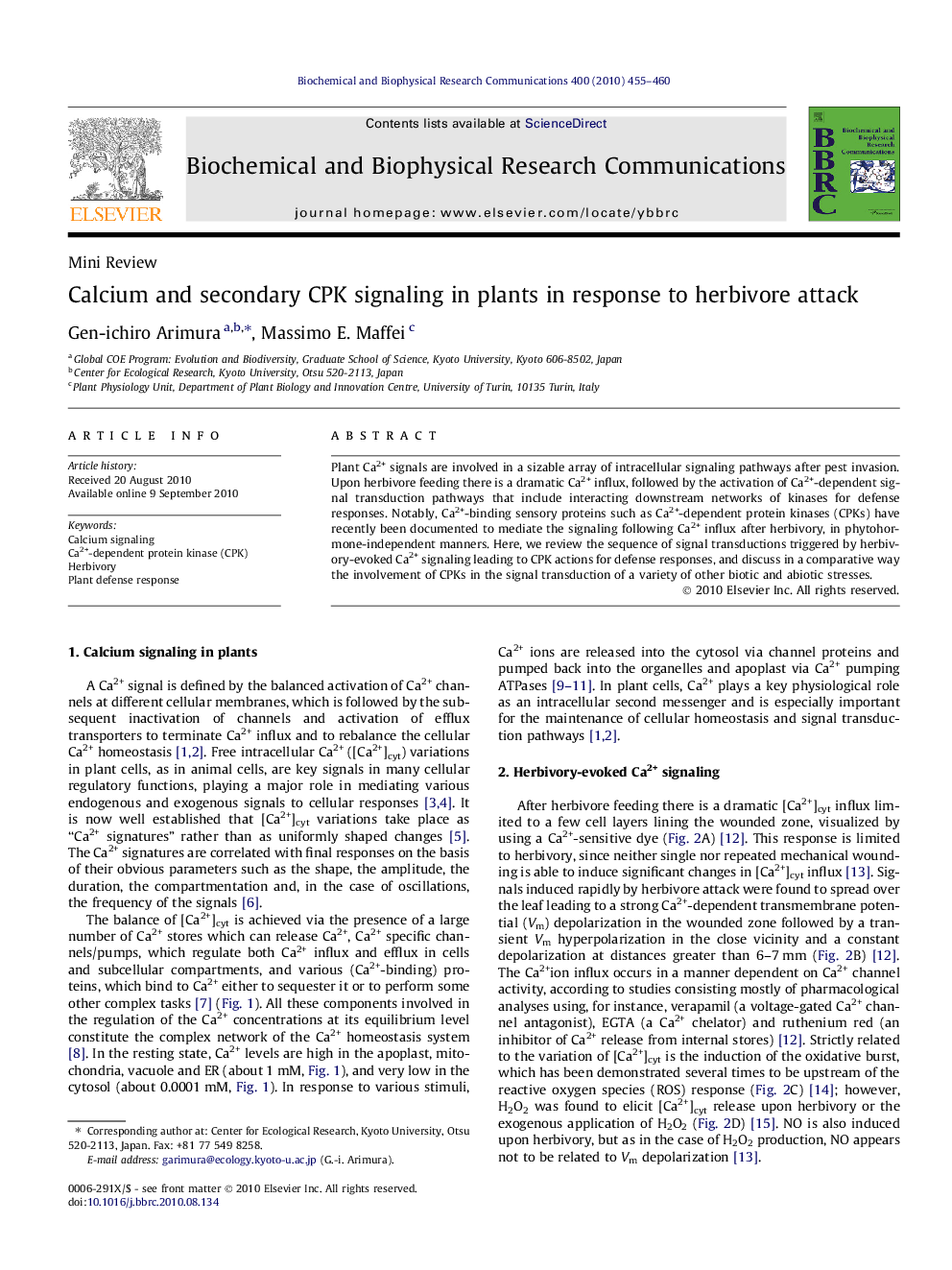| Article ID | Journal | Published Year | Pages | File Type |
|---|---|---|---|---|
| 1931334 | Biochemical and Biophysical Research Communications | 2010 | 6 Pages |
Plant Ca2+ signals are involved in a sizable array of intracellular signaling pathways after pest invasion. Upon herbivore feeding there is a dramatic Ca2+ influx, followed by the activation of Ca2+-dependent signal transduction pathways that include interacting downstream networks of kinases for defense responses. Notably, Ca2+-binding sensory proteins such as Ca2+-dependent protein kinases (CPKs) have recently been documented to mediate the signaling following Ca2+ influx after herbivory, in phytohormone-independent manners. Here, we review the sequence of signal transductions triggered by herbivory-evoked Ca2+ signaling leading to CPK actions for defense responses, and discuss in a comparative way the involvement of CPKs in the signal transduction of a variety of other biotic and abiotic stresses.
Research highlights► Upon herbivory there is a Ca2+ influx limited to cell layers lining the wounded zone. ► Ca2+-binding sensory proteins are critically involved in herbivory responses. ► CPKs play extensive roles in various biological and environmental responses.
